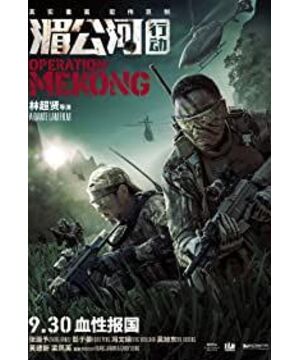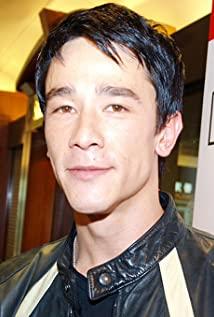Don't get me wrong, I'm going to go too far this time, not in a completely derogatory sense. What we want to talk about today is the growth of Lin Chaoxian.
In fact, Lin Chaoxian in "Beast Police" and "Jianghu" was not so overdone. At that time, Lin Chaoxian was full of talent and unwillingness, but inadvertently created a high-level work in the hearts of fans. However, that kind of black humour that is hilarious and scolding is gone forever in the post-"Infernal Affairs" era when Hong Kong films are becoming more refined. So, after "The Witness" and "The Informant", Lin Chaoxian gradually refined himself and moved closer to the "blockbuster" director of police and bandit films.
"Reverse War" is the origin of the Lin Chaoxian-style blockbuster, and it also represents the textbook-level "Lin Chaoxian-style overreach". What is "Lin Chaoxian's excessive style"? The content is as follows:
The protagonist who has experienced life and death and is at a loss in the new environment (the confused Jay Chou, the angry Nicholas Tse), the important supporting role who can die or not die (Liao Qizhi who died very forcefully), and the woman who doesn't know what she is doing The protagonist (who remembers that "Reverse War" has a heroine?), the big scene (biubiubiubiu...), and the emotional scene where you can walk away ("I'm your brother!"), etc. In the end, the protagonist At least one of them will leave us forever (thinking of Nicholas Tse's crystal clear snot after Jay Chou's death)... Big investments, big scenes, big weapons, big scenes have not brought big returns, whether it is a film critic or a passerby. Completely digesting the increasingly overdone Lin's narrative, once Hong Kong, the rough narrative and the original ecological roughness complement each other, while the refined Lin Chaoxian has turned the genre film into a scene movie with an interlude story, causing the audience to not have a high movie first. Embarrassing phenomena such as madness, movie crying first, audience indifference, etc. So that Lin Chaoxian turned back to play sports movies such as "Fighting" and "Broken Wind" with unpopular themes, looking for a way to balance too much.
At that time, the police and bandit genre films (in Mainland theaters) entered a growth period, and "Drug Wars" for fans to enjoy, just like the movie's former name, achieved the ice-breaking effect of police and bandit movies; two years later in the mainland, Cao Bao Ping and Ding Sheng worked together to break through the dilemma of no one who directed and directed mainland police and bandit films, and took a solid step forward in drama and documentary police and bandit movies.
And "Mekong River Action" (hereinafter referred to as "Mekong River") is catching up with such a growth node one by one. Although the above police and bandit films have their own temperaments, they are not long-term choices for genre films due to scale, audience and other reasons. stable output. A good genre film, in addition to big scenes, also needs to have just the right rhythm and emotional support, and these are exactly the fate of Lin Chaoxian, who has experienced the "Reverse War"-style Waterloo.
Fortunately, although "Lin Chaoxian's style goes too far" is still there, he has begun to learn how to do subtraction.
In the protagonist, Lin Chaoxian has done a subtraction, and Zhang Hanyu's role has been given a role close to Sun Honglei in "Drug War" (even pretending to be a boss is the same), responsible for the smooth promotion of the action, emotional logic belongs to the seasoning, only "children" (please Pay attention to Zhang Hanyu's eyes when he killed a child in the supermarket) and Xiaotian have a few dabbling in it, and the strong emotion is reserved for the role of Peng Yuyan, who is determined to exterminate drug dealers for his girlfriend. Although I personally think that this option is out of the main theme, I also inadvertently distinguish the two images of "sweeping drugs for the country" and "sweeping drugs for redemption", and at the same time achieves unity politically and emotionally.
Emotionally, Lin Chaoxian gave up the tricks of snot and tears, slow motion and last words in "Reverse War". Nezha did not have too many lines on the guilt and redemption of the reckless amputation of "Andy Lau". The two scenes of the hospital and the cave are completely explained. Bingbing's feelings for "Andy Lau" are only released once in the hospital scene, and they are not involved too much. Zhang Hanyu's feelings for "children" are used as condiments instead of changing the main course of the plot. , Xiaotian, as the game-breaker of the audience, contributed to the annual scene of running dogs and minesweeping... Even if the above characters (or dogs) are not overly sensational, they can finally make the audience deeply empathize. However, these details did not occupy too much space. The redemption and struggle of most of the characters gave way to Eddie Peng's emotional changes, so as not to overwhelm the host and to be too sensational, and after the story was told in a big way, it would not make everyone face the face. change, and let Eddie Peng's final decision move everyone.
From "Reverse War" to "Mekong River", the ghost knows what Lin Chaoxian has experienced. Maybe the censorship framework has triggered his inspiration, and the limitation of documentary has "limited" his excesses. However, just like Eddie Peng's Mandarin has improved so much, he still can't help revealing his Taiwanese accent when he recognizes "Andy Lau" singing, Lin Chaoxian's over-the-top evaluation of the movie still caused damage to the film's evaluation for a lot of time. Uncomfortable shots, drugged soundtracks, and obvious confrontation between good and evil make "Mekong River" destined to be difficult for fans and critics to like the predecessors above.
However, in the short term, viewers who say that Korean-style films have ditched domestic films for ten years can be restrained a little bit.
Whee.
View more about Operation Mekong reviews











